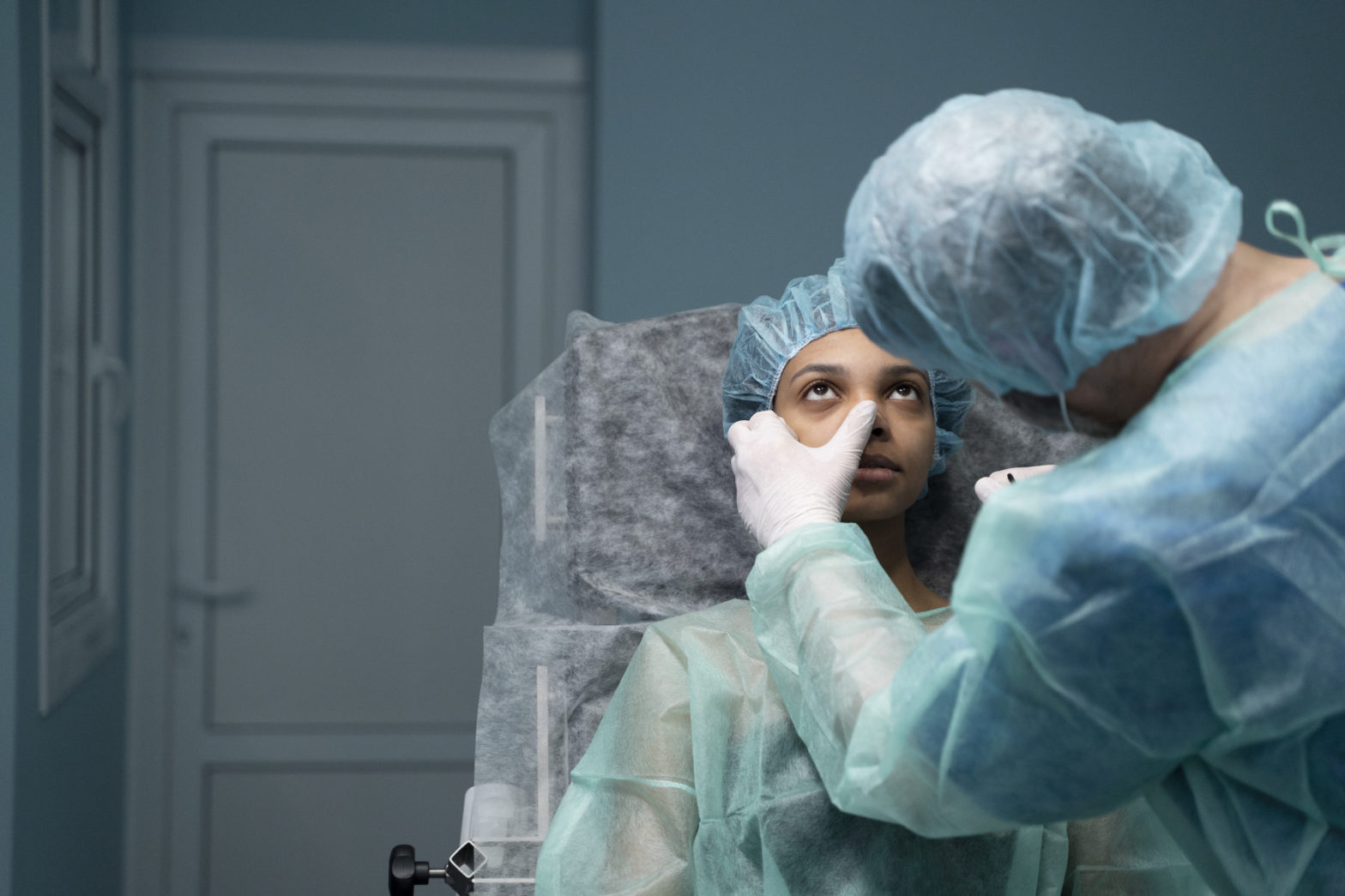Millions of individuals worldwide suffer from the common eye condition known as cataracts. When the eye’s lens becomes foggy, it can cause blurry vision and, if untreated, may even result in blindness. Effective management of this condition requires knowledge of the causes and potential treatments.
What are The Causes of Cataracts?
-
Age
The accumulation of proteins in the lens that occurs with aging can lead to cloudiness and visual impairment.
-
Genetics
People who are susceptible to cataracts might be due to genetics. Some people may have a family history of cataracts or have a genetic tendency to develop the cataract sooner in life.
-
UV Radiation
Long-term sun exposure that increases ultraviolet (UV) radiation can raise the risk of cataract development. Wearing UV-blocking sunglasses to protect your eyes can help lower this risk.
-
Medical Conditions
The risk of cataract development can be raised by a number of medical disorders, including diabetes, hypertension, and obesity. Effectively managing these disorders can lower the chance of cataract development.
-
Eye Injury
Cataracts can develop as a result of damage to the eye’s natural lens from trauma or injury. Maintaining a good health of your eyes requires taking preventative measures to avoid eye injuries.
Treatment Options for Cataracts
-
Contact lenses or prescription glasses
Prescription glasses or contact lenses can help with vision improvement in the early stages of cataracts by making up for the cloudiness in the lens.
-
Operation
The best treatment for advanced cataracts is cataract surgery. An artificial intraocular lens (IOL) is used to replace the clouded lens after the surgery. Current methods for cataract surgery are very successful, safe, and have little chance of problems.
-
Lifestyle Changes
Modifying your lifestyle to include things like giving up smoking, eating a balanced diet, and shielding your eyes from UV rays can help prevent the onset of cataracts and lower your chance of getting them in the first place.
-
Medications
Although there aren’t any drugs on the market that will reverse cataracts, some eye drops can help with discomfort or other symptoms like dry eyes.
What is the Difference Between Normal and Cataract Eye?
The below table outlines the key differences between a normal eye and one affected by cataracts across various aspects, including lens clarity, vision quality, causes, treatment options, progression rate, and impact on daily life.
|
Aspect |
Normal Eye |
Eye with Cataract |
|
Lens Clarity |
Clear |
Cloudy |
|
Vision Clarity |
Sharp |
Blurred or Fuzzy |
|
Light Transmission |
Unobstructed |
Partially Blocked |
|
Color Perception |
Normal |
Altered (may appear yellowish or faded) |
|
Vision Quality |
Crisp and Clear |
Reduced or Impaired |
|
Causes |
Aging, Genetics, UV Exposure, Healthy Lifestyle |
Aging, Genetics, UV Exposure, Medications, Trauma |
|
Treatment |
Glasses, Contact Lenses |
Cataract surgery, Intraocular Lens Implantation |
|
Progression Rate |
Stable |
Gradually Worsens |
|
Impact on Daily Life |
Minimal |
Interferes with daily activities like Driving, Reading |
How Painful is Cataract Surgery?
Cataract surgery is often not painful. Most patients experience little discomfort during the treatment since local anesthetic is used to numb the eye and surrounding tissues. This implies you’ll be awake during surgery but not in pain.
The procedure itself is usually short, taking less than 30 minutes, and conducted as an outpatient, so you can go home the same day. During the operation, your surgeon will make a small incision in the eye to remove the cloudy lens caused by the cataract and replace it with an artificial intraocular lens (IOL).
Some patients may feel pressure or mild discomfort during the surgery, but this should not be painful. If you have any discomfort, speak with your physician, who can modify the dosage or administer additional numbing medicine.
It is typical to feel slight discomfort, irritation, or itching in the eye for a few days after surgery while it recovers. Your surgeon will prescribe eye drops to help prevent infection and inflammation, as well as to relieve any discomfort.
Overall, while cataract surgery may appear scary, most patients find it to be a reasonably comfortable and painless treatment, with the added bonus of greatly enhanced vision. If you have any concerns or questions concerning cataract surgery, you should discuss them with your ophthalmologist ahead of time to ensure that you are well-informed and prepared for the process.









